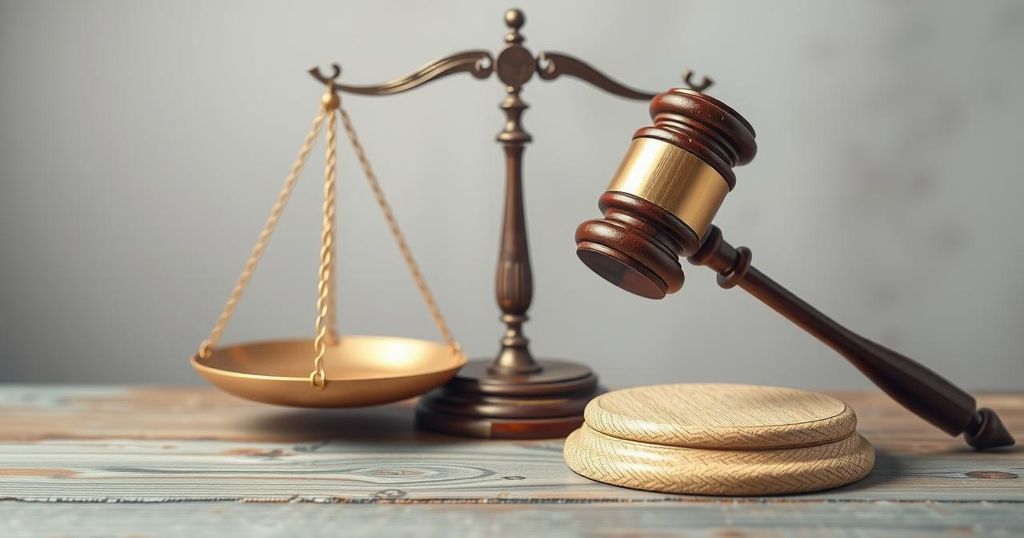A mass trial of approximately 40 political opponents commenced in Tunis, with human rights groups condemning it as a politically motivated attack on dissent. Defendants, many of whom are prominent critics of President Kais Saied, face serious charges, while family members protested outside the court. The trial exacerbates concerns about the rollback of Tunisia’s democratic reforms since Saied’s power grab in 2021.
A mass trial involving approximately 40 political opponents began in Tunis, drawing sharp criticism from human rights organizations who label it a politically motivated crackdown against dissenting voices. The defendants face serious allegations, including “plotting against state security” and “belonging to a terrorist group,” with many being prominent critics of President Kais Saied, including politicians, lawyers, and media figures.
Families of the accused gathered at the Court of First Instance in Tunis, voicing chants of “freedom” while accusing the judiciary of acting under governmental influence. According to Bassam Trifi, the head of the Tunisian League for the Defence of Human Rights, this represents a significant judicial scandal and one of the “darkest injustices” in Tunisia’s history.
The charges against the accused highlight ongoing concerns regarding the deterioration of democratic principles following Saied’s power takeover in July 2021. Critics of Saied, including Jaouhar Ben Mbarek and others who objected to his suspension of Parliament, are among those facing trial, with some detainees having reportedly been barred from attending court.
Human Rights Watch condemned the proceedings as a “mockery” and demanded the immediate release of all who have been arbitrarily detained under dubious security and terrorism allegations linked to a so-called “conspiracy.” This mass trial further signifies the regime’s continued repression of political voices.
Leaders of rival political factions, such as Rached Ghannouchi and Abir Moussi, have faced significant prison sentences, signaling that Saied’s government shows no signs of easing its grip on dissent. Despite recent claims by Saied insisting on his non-interference with the judiciary, numerous human rights entities have accused his administration of undermining judicial independence.
Both domestic and international human rights organizations have urged an end to politically motivated prosecutions, with the United Nations also calling for an end to the persecution of political adversaries. As Tunisia maintains its relationship with the European Union, concerns persist regarding its approach to human rights amidst a crackdown on political opposition.
The trial of political opponents in Tunisia raises serious concerns regarding the treatment of dissent and the erosion of democratic norms under President Kais Saied. Human rights advocates emphasize the politically motivated nature of the charges and demand the release of unjustly detained individuals. As this situation evolves, it highlights the critical need for international awareness and action to uphold human rights in Tunisia.
Original Source: www.aljazeera.com




